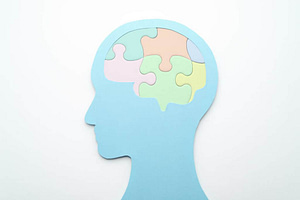While this blog post aims to provide a basic understanding of ASD, please note that it is in no way a substitute for a formal diagnosis or professional screening. If you suspect that you or a loved one may be on the autism spectrum, I strongly encourage you to seek a comprehensive evaluation from a qualified healthcare professional.
Now, let’s explore some key questions that can help you gain a better understanding of autism and its potential impact on daily life.

Do you experience challenges in social interactions?
One of the hallmarks of ASD is difficulty with social communication and interaction. Individuals on the spectrum may struggle with making and maintaining eye contact, understanding social cues, initiating or sustaining conversations, and forming meaningful relationships. If you find yourself consistently facing challenges in these areas, it may be worth exploring further.
Do you engage in repetitive behaviors or have highly focused interests?
Many individuals with ASD exhibit repetitive behaviors, such as hand-flapping, rocking back and forth, or lining up objects in a specific order. They may also develop intense, highly focused interests in specific topics, often displaying extensive knowledge in those areas. If you find that you have repetitive behaviors or a strong attachment to specific interests, it could be indicative of ASD.
Do you experience sensory sensitivities?
Sensory sensitivities are common among individuals on the autism spectrum. They may be hypersensitive or hyposensitive to various sensory stimuli, including sounds, lights, textures, tastes, or smells. If you frequently find certain sensations overwhelming or if you seek out certain sensory experiences, it might be worth exploring whether these sensitivities align with ASD traits.
Do you struggle with changes in routine or have difficulty adapting to new situations?
Individuals with ASD often exhibit a strong need for predictability and may struggle with changes in routine or unexpected transitions. They may become distressed or anxious when faced with new environments, schedules, or unexpected events. If you find it challenging to adapt to changes or experience anxiety when routines are disrupted, it could be a sign to consider further assessment.
Have you experienced delays or difficulties in language and communication development?
ASD can impact speech and language development. Early signs may include delayed speech milestones, limited vocabulary, or a tendency to repeat phrases or words without understanding their meaning (echolalia). Difficulties in understanding non-literal language, sarcasm, or jokes are also common. If you or someone you know has experienced significant delays or ongoing challenges in language and communication, consulting a professional is recommended.
If you resonate with some of the traits mentioned above or have concerns about yourself or a loved one, I strongly encourage you to seek professional guidance. As a licensed therapist specializing in Autism Spectrum Disorder, I am here to support you through comprehensive evaluations, personalized counseling, and strategies for managing ASD-related challenges. Reach out to me today to schedule a consultation and take the next step towards understanding and support.
Remember, early intervention and support can make a significant difference in the lives of individuals on the autism spectrum. Don’t hesitate to seek the help you need.
Disclaimer: This blog post is provided for informational purposes only and is not intended as a substitute for professional medical or mental health advice, diagnosis, or treatment. Always seek the advice of a qualified healthcare professional regarding any questions or concerns you may have about autism or any other medical condition.





